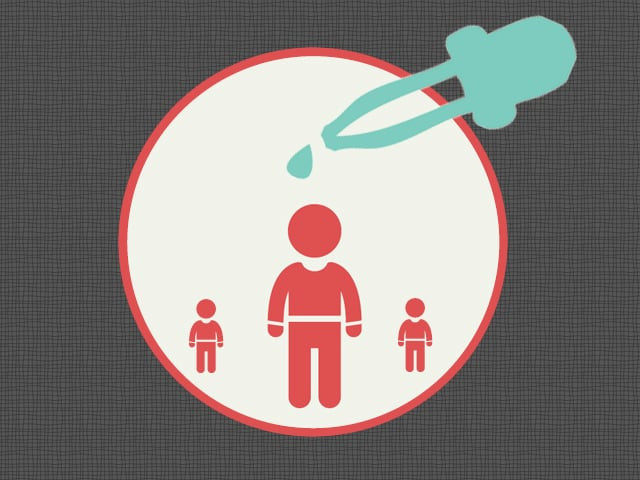Trust deficit: Scepticism engulfs polio immunisation drives
Experts explain Taliban’s ban, Shakil Afridi’s case have added to public’s distrust.

The director said there were around 1,800 active polio vaccination teams in the province. PHOTO: FILE
As lingering mistrust shapes public perception about one of the country’s largest health sector initiatives, doctors and paediatricians are also becoming increasingly critical of the polio eradication programme. Medical health professionals are now voicing doubts over the efficacy of the immunisation scheme.
Doctors and officials associated with the campaign are sceptical about the way things have proceeded so far, while university and college professors are expressing similar concerns.
“Polio is becoming an epidemic because the overall vaccination status is poor and on the decline,” said a senior doctor in Peshawar, who is visited by polio patients almost on a weekly basis “We need to boost the overall immunisation campaign – why just concentrate on polio?” he asked. While polio paralyses or handicaps children, diseases like measles, diphtheria and tetanus cause fatalities, argued the doctor.
The recent campaign of hatred against the US in the name of drone strikes and the indirect association of the polio drive with the western world have had an impact on increasing the trust gap. Experts believe a general perception linking both Shakil Afridi and CIA with immunisation drives, combined with the Taliban’s ban on polio vaccination has caused irreparable damage to the polio programme in the province.
EPI Deputy Director Dr Janbaz Afridi said Dr Shakil Afridi’s case has made it very difficult to tackle polio in Khyber-Pakhtunkhwa and Federally Administered Tribal Areas (Fata) head-on because of the increase in militancy. He added about 36,354 parents refused vaccination for their children in October alone and that another 119,580 children have been left unvaccinated – unprotected from polio.
According to official figures, out of the 70 polio cases which have been reported in the country so far, 10 cases are from K-P, 48 cases from Fata, seven cases from Punjab and five cases from Sindh. Out of these one case in Peshawar and one in Khyber Agency are yet to be confirmed.
A matter of safety
Talking to The Express Tribune, a K-P Health Department official said polio immunisation teams are unable to make door-to-door visits due to security concerns but they still get paid.
The official said the main reason behind such a high incidence of polio cases is that children are not vaccinated regularly while authorities lacked commitment to inspect lapses in vaccination programs to check for those who slipped through the gaps.
The official lamented the fact that despite hefty budget allocations for advertising campaigns, social mobilisation and communication drives to gain public support, polio cases and parental refusals have persistently surfaced, confusing authorities.
“All officials currently employed for the Expanded Program of Immunisation (EPI) K-P are facing a great deal of pressure, because both stakeholders and government accuse them for not being able to handle the project efficiently and restore public trust in the polio drive,” he said.
While polio workers are escorted by police officials, EPI director Dr Janbaz Afridi acknowledged these escorts made life difficult for women polio workers because of cultural barriers, family pressure and militant threats.
In collaboration with the World Health Program and United Nations Childrens Fund, the government of Pakistan is spending large sums on the eradication of polio and communications to raise awareness regarding the disease. Dr Janbaz added the annual budget allocation for polio vaccination campaigns in K-P is Rs4 billion.
The director said there were around 1,800 active polio vaccination teams in the province whereas the government spends substantial funds on the protection of those teams by deploying police officials as escorts.
Janbaz added the duration for each polio campaign has been increased from three to 10 days and argued that increasing the window of vaccination has yielded better outputs.
Published in The Express Tribune, November 29th, 2013.













COMMENTS
Comments are moderated and generally will be posted if they are on-topic and not abusive.
For more information, please see our Comments FAQ